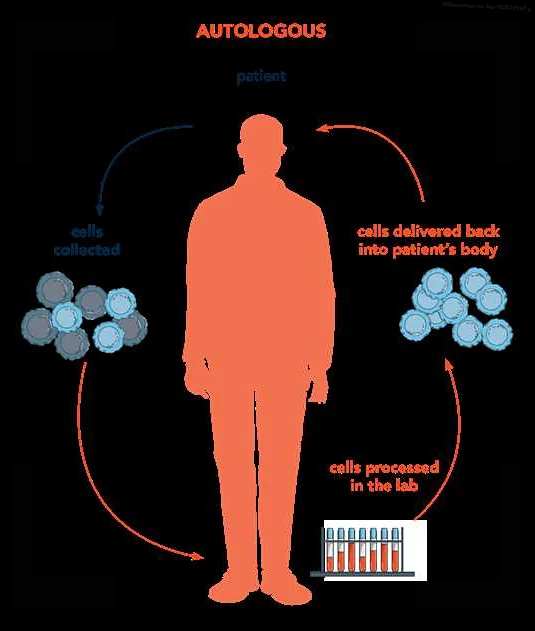Overview of Genetic Diseases: Causes, Symptoms, and Treatments
Содержимое
Learn about genetic diseases, including their causes, symptoms, and treatment options. Understand how genetic disorders can be inherited and how they can impact an individual’s health and quality of life. Explore common genetic diseases such as Down syndrome, cystic fibrosis, and sickle cell anemia. Stay informed about advancements in genetic testing and research that are improving our understanding and management of genetic disorders.
Genetic diseases, also known as hereditary or inherited diseases, are caused by abnormalities in an individual’s genetic material. These diseases can be passed down from parents to their offspring, and they can affect people of all ages, races, and genders. With advances in genetic testing and research, our understanding of genetic diseases has improved significantly, leading to better diagnosis and treatment options.
The causes of genetic diseases can vary. Some genetic diseases are caused by single gene mutations, while others are the result of abnormalities in chromosomal structure or number. Inherited genetic diseases can be classified into three categories: dominant, recessive, and X-linked. Dominant diseases manifest when an individual inherits a single copy of the mutated gene from one parent, while recessive diseases require both copies of the gene to be mutated. X-linked diseases primarily affect males and are caused by mutations in genes located on the X chromosome.
The symptoms of genetic diseases can range from mild to severe and can affect different body systems. Some genetic diseases may only cause physical abnormalities, while others may affect neurological function or metabolism. Common symptoms include developmental delays, intellectual disabilities, heart problems, and physical malformations. It’s important to note that not all individuals with genetic mutations will develop symptoms, as the severity and presentation of genetic diseases can vary widely.
Treatment options for genetic diseases depend on the specific disease and its symptoms. In some cases, there may be no cure, and treatment focuses on managing symptoms and improving quality of life. However, advances in gene therapy and genetic engineering hold promise for potential cures for certain genetic diseases in the future. Other treatment options include medications, surgeries, and lifestyle modifications. Genetic counseling is also an essential component of managing genetic diseases, as it can help individuals and families understand their risks, make informed decisions, and access appropriate support and resources.
In conclusion, genetic diseases are a complex and diverse group of conditions caused by abnormalities in an individual’s genetic material. Understanding the causes and symptoms of genetic diseases is crucial for accurate diagnosis and effective treatment. With ongoing research and advancements in genetic testing, the future holds hope for improved treatment options and potential cures for genetic diseases.
Understanding Genetic Diseases

Genetic diseases are medical conditions that are caused by abnormalities in a person’s genetic material, such as their genes or chromosomes. These abnormalities can be inherited from one or both parents, or they can occur spontaneously during the development of an embryo or fetus.
Genes are responsible for the production of proteins, which are essential for the proper functioning of cells and tissues in the body. When there is a mutation or alteration in a gene, it can lead to the production of abnormal proteins or the absence of certain proteins, which can disrupt normal cellular processes.
There are many different types of genetic diseases, and they can vary greatly in terms of their causes, symptoms, and treatment options. Some genetic diseases are caused by a single gene mutation, while others are caused by a combination of genetic and environmental factors.
Genetic diseases can also be categorized based on the inheritance patterns they follow. For example, autosomal dominant genetic diseases occur when a person inherits a mutated gene from one parent, while autosomal recessive genetic diseases occur when a person inherits mutated genes from both parents.
- Common genetic diseases include cystic fibrosis, sickle cell anemia, and Huntington’s disease.
- Rare genetic diseases include Hutchinson-Gilford progeria syndrome, Duchenne muscular dystrophy, and Tay-Sachs disease.
Diagnosing genetic diseases can be challenging because the symptoms can vary widely and may be similar to those of other conditions. However, advances in genetic testing have made it easier to identify specific genetic mutations and diagnose genetic diseases earlier.
Treatment options for genetic diseases can also vary depending on the specific condition. Some genetic diseases have no cure and require lifelong management of symptoms, while others can be treated with medications, surgery, or other interventions. In some cases, gene therapy may be used to correct the underlying genetic mutation and potentially cure the disease.
It is important for individuals with genetic diseases and their families to work closely with healthcare professionals to understand the causes, symptoms, and treatment options for their specific condition. Genetic counseling can also be helpful in providing information and support to individuals and families affected by genetic diseases.
Common Causes of Genetic Diseases
Genetic diseases occur when there are abnormalities or changes in an individual’s genes or chromosomes. These changes can be caused by various factors, including:
1. Inherited mutations: Genetic diseases can be passed down from parents to their children through inherited mutations. These mutations can occur in a single gene or multiple genes and can be present in either one or both parents.
2. Spontaneous mutations: Some genetic diseases are not inherited but occur as a result of spontaneous mutations that happen in a person’s genes or chromosomes for unknown reasons. These mutations can happen during the formation of reproductive cells (eggs and sperm) or early stages of fetal development.
3. Chromosomal abnormalities: Genetic diseases can also be caused by abnormalities in the number or structure of chromosomes. These abnormalities can occur due to errors in cell division, such as nondisjunction, translocation, or deletion. Examples of genetic diseases caused by chromosomal abnormalities include Down syndrome and Turner syndrome.
4. Environmental factors: While genetic diseases are primarily caused by genetic changes, environmental factors can also play a role in their development and severity. Exposure to certain chemicals, toxins, radiation, or infections during pregnancy can increase the risk of genetic diseases in the unborn child.
5. Multifactorial inheritance: Some genetic diseases are caused by a combination of genetic factors and environmental factors. These diseases, known as multifactorial inheritance disorders, result from the interaction of multiple genes and environmental influences. Examples include heart disease, diabetes, and certain types of cancer.
6. Recessive gene inheritance: Genetic diseases can also be caused by the inheritance of two copies of a mutated gene, one from each parent. These diseases are known as recessive gene disorders and include conditions like cystic fibrosis, sickle cell anemia, and Tay-Sachs disease.
Understanding the common causes of genetic diseases is critical for diagnosis, prevention, and treatment. Genetic counseling and testing can help individuals and families assess their risk and make informed decisions about family planning and healthcare.
Recognizing Symptoms of Genetic Diseases

Recognizing the symptoms of genetic diseases is crucial for early diagnosis and treatment. Genetic diseases are caused by abnormalities or mutations in an individual’s DNA, and they can affect various parts of the body.
Some common symptoms of genetic diseases include:
Physical abnormalities: Genetic diseases can cause physical changes in the body, such as facial abnormalities, limb deformities, or growth abnormalities. These physical symptoms are often one of the first signs that something may be wrong.
Developmental delays: Genetic diseases can affect a person’s development, leading to delays in reaching milestones such as sitting up, crawling, walking, or talking. These delays may be noticeable in infancy or early childhood.
Intellectual disabilities: Many genetic diseases are associated with intellectual disabilities, ranging from mild to severe. Individuals may have difficulty with learning, problem-solving, memory, or cognitive abilities.
Chronic health problems: Some genetic diseases can lead to chronic health issues, such as heart abnormalities, respiratory problems, vision or hearing loss, or immune system disorders. These health problems may require ongoing medical management.
Behavioral changes: Certain genetic diseases can cause behavioral changes, such as hyperactivity, aggression, self-injurious behavior, or social withdrawal. These changes may be noticeable in childhood or adolescence.
Family history: In many cases, a family history of a genetic disease can increase the risk of an individual developing that same disease. If there is a known history of genetic diseases in your family, it is important to be aware of the signs and symptoms associated with those conditions.
If you notice any of these symptoms or have concerns about your health or the health of a loved one, it is important to seek medical advice. Genetic diseases can vary greatly in their severity and progression, so early detection and intervention can make a significant difference in managing the condition and improving quality of life.
Diagnosing Genetic Diseases
Diagnosing genetic diseases involves a complex process that requires a combination of clinical evaluation, medical testing, and genetic counseling. Here are the key steps involved in diagnosing genetic diseases:
- Family History: The first step in diagnosing a genetic disease is to gather a detailed family history. This includes information about any known genetic diseases or conditions that may run in the family. Family history can provide important clues about the likelihood of a genetic disease being present.
- Clinical Evaluation: A thorough clinical evaluation is then conducted by a healthcare provider to assess the signs and symptoms of the individual suspected of having a genetic disease. This evaluation may involve physical examinations, medical history assessment, and observation of specific traits or characteristics.
- Genetic Testing: Genetic testing is a crucial step in diagnosing genetic diseases. Various types of genetic tests can be performed, including chromosomal analysis, molecular genetic tests, and biochemical tests. These tests help identify specific genetic mutations or abnormalities that may be responsible for the disease.
- Confirmation and Counseling: Once the genetic test results are obtained, they are analyzed and interpreted by geneticists or genetic counselors. If a specific genetic mutation or abnormality is identified, it can confirm the diagnosis of a genetic disease. Genetic counselors then provide guidance and counseling to the individual and their family members about the implications of the diagnosis, treatment options, and the chances of passing the disease on to future generations.
It is important to note that diagnosing genetic diseases can be challenging due to the wide range of symptoms and genetic variations associated with these conditions. Additionally, not all genetic diseases have specific treatments or cures available. However, early diagnosis and genetic counseling can play a crucial role in managing symptoms, providing appropriate interventions, and ensuring the best possible outcomes for individuals and their families affected by genetic diseases.